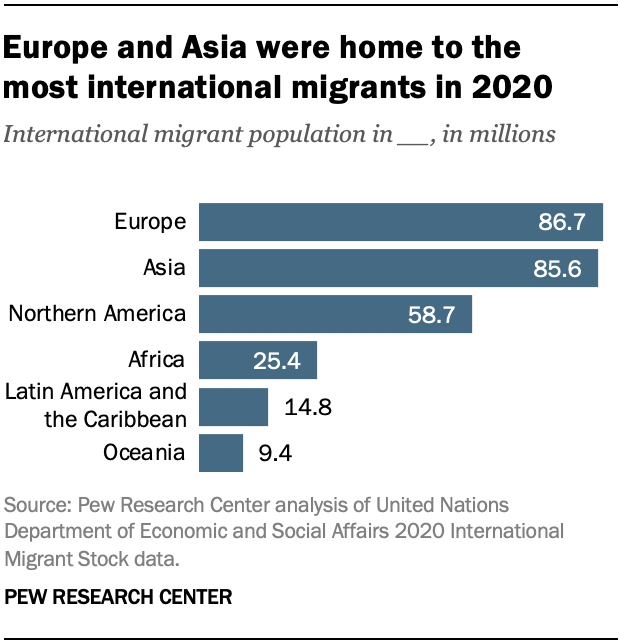From Open Arms To Deportations: Understanding Portugal's Changing Approach To Migration

Table of Contents
Portugal's Historically Open-Door Policy
For much of the 20th century, and even into the early 21st, Portugal adopted a relatively liberal approach to immigration. This openness stemmed from several factors: Portugal's own history of significant emigration, particularly to Brazil and other European countries, fostered a sense of empathy and understanding towards those seeking a better life abroad. Furthermore, economic needs, especially during periods of growth, fueled a demand for immigrant labor across various sectors. Finally, a culturally ingrained sense of hospitality and tolerance contributed to a generally welcoming environment for newcomers.
- Examples of successful immigrant integration: The integration of Brazilian communities, particularly in the Lisbon and Algarve regions, demonstrates the potential for successful integration when policies support language acquisition, access to employment, and community building.
- Economic benefits of immigration in previous decades: Immigrant workers filled labor shortages in agriculture, construction, and hospitality, contributing significantly to Portugal's economic growth. Remittances sent home by Portuguese emigrants also played a vital role in supporting the national economy.
- Cultural contributions of immigrant communities: Immigrant communities enriched Portuguese society through their diverse culinary traditions, artistic expressions, and unique cultural perspectives. This cultural exchange added vibrancy and dynamism to the country.
The Shift Towards Stricter Immigration Controls
The relatively open immigration policy of the past has faced increasing challenges in recent years. Several factors contributed to this shift towards stricter controls:
-
Economic downturns: The global financial crisis of 2008 and subsequent economic hardship led to increased competition for jobs and resources, fueling concerns about the impact of immigration on the domestic workforce.
-
Rising nationalist sentiment: The rise of right-wing populist movements across Europe also impacted Portugal, leading to increased anti-immigrant sentiment and demands for stricter border controls.
-
Pressure from the EU: Portugal, as a member of the European Union, faces pressure to align its migration policies with EU-wide regulations and directives on asylum and border control. This often involves stricter enforcement of deportation laws and more stringent asylum application processes.
-
Security concerns: Following increased terrorist threats across Europe, heightened security concerns led to a greater focus on border security and stricter immigration controls.
-
New legislation impacting immigration processes: Recent changes in Portuguese law have tightened requirements for obtaining residency permits and work visas.
-
Increased border control measures: Investment in border surveillance technologies and increased personnel have strengthened border control efforts.
-
Changes to asylum application procedures: The process for applying for asylum has become more complex and rigorous.
-
Examples of stricter enforcement of deportation laws: Increased deportations of individuals who fail to meet the requirements for residency or asylum have become more common.
The Impact of the EU on Portugal's Migration Policy
The EU has significantly influenced Portugal's approach to migration, largely through directives and regulations aimed at harmonizing member states' policies on asylum and border control. The Dublin Regulation, for instance, determines which EU country is responsible for processing an asylum application, often leading to challenges for Portugal in managing asylum seekers who arrive on its shores. The EU also provides funding for integration programs, but the level of funding and the effectiveness of these programs are often subject to debate.
- Specific EU directives impacting Portugal’s migration policy: The Reception Conditions Directive, the Qualification Directive, and various regulations related to border management all directly influence Portugal’s migration policy framework.
- Impact of the Dublin Regulation: The Dublin Regulation often places a disproportionate burden on frontline EU states like Portugal, raising concerns about fairness and resource allocation.
- EU funding for integration programs: While EU funds support some integration initiatives, the level of funding often falls short of addressing the complex needs of diverse migrant communities.
The Lived Experiences of Migrants in Contemporary Portugal
The reality for migrants in Portugal today is a complex mix of challenges and opportunities. Access to employment, affordable housing, and healthcare remain significant hurdles for many. While many migrant communities have successfully integrated and contributed significantly to Portuguese society, experiences with discrimination and xenophobia unfortunately remain a reality for some.
- Examples of successful migrant integration initiatives: Community-based organizations often play a critical role in assisting migrants with language learning, job searching, and navigating the legal system.
- Challenges in accessing essential services: Language barriers, bureaucratic complexities, and a lack of awareness of available services often hinder migrants' access to essential services.
- Experiences with discrimination and xenophobia: Reports of discrimination and xenophobia targeting migrant communities highlight the need for improved social cohesion and cultural understanding.
Conclusion
Portugal's migration policy has undergone a notable transformation, shifting from a relatively open approach to a more restrictive one. This shift is driven by a confluence of factors, including economic pressures, the influence of EU regulations, and changing social attitudes. The debate surrounding Portugal's migration policy is ongoing, with strong arguments both for and against stricter controls. The long-term implications of these policy changes for Portugal's economy, social fabric, and international relations remain to be seen. Understanding Portugal's migration policy requires a nuanced perspective, acknowledging both its historical context and the evolving challenges of the modern era. We encourage you to delve deeper into this crucial topic through further research and engagement in informed discussions. Explore resources from organizations like the UNHCR and the Portuguese Immigration and Borders Service (SEF) to gain a more comprehensive understanding of Portugal's migration policy and its impact on the country and its people.

Featured Posts
-
 Mission Impossible Franchise How Dead Reckoning Part Twos Trailer Learns From Previous Trailers
May 14, 2025
Mission Impossible Franchise How Dead Reckoning Part Twos Trailer Learns From Previous Trailers
May 14, 2025 -
 Wrestle Mania Iii Livestream Watch It On Wwe Vault This Sunday
May 14, 2025
Wrestle Mania Iii Livestream Watch It On Wwe Vault This Sunday
May 14, 2025 -
 Proces D Un Ivoirien Oqtf Fraude Au Train Et Exhibition Devant Une Controleuse Sncf
May 14, 2025
Proces D Un Ivoirien Oqtf Fraude Au Train Et Exhibition Devant Une Controleuse Sncf
May 14, 2025 -
 Trisha Paytas Euphoria Season 3 Casting Fan Theories Explored
May 14, 2025
Trisha Paytas Euphoria Season 3 Casting Fan Theories Explored
May 14, 2025 -
 Scotty Mc Creerys Sons Adorable George Strait Performance
May 14, 2025
Scotty Mc Creerys Sons Adorable George Strait Performance
May 14, 2025
